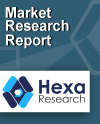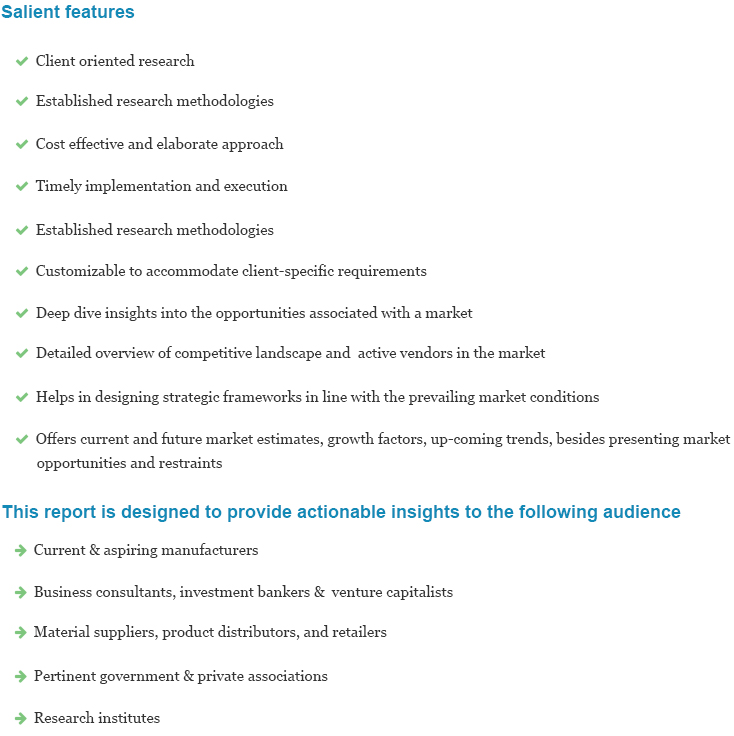
Global Gene Therapy Market Size, Share, Growth, Overview, Analysis, Trends, Research, And Forecasts Report, 2019 To 2025
- Published: February, 2019
- Format: Electronic (PDF)
- Number of pages: 70
- Industry: Biotechnology
The global gene therapy market is projected to witness remarkable growth in the coming years owing to rising cases of hereditary diseases across the globe. Gene therapy is an advanced medical treatment that involves the transfer of a normal or healthy gene to replace a defective gene in a cell. It can be used to cure various chronic and genetic disorders in human beings. Such advanced medical treatments eliminate the use of surgery, drugs, and other medical procedures that can lead to side-effects. In addition, gene therapy leads to formation of beneficial proteins that support the body to perform normal functions to its full potential.
Growing awareness among people regarding gene therapy can augment market growth in the coming years. The therapy can be used to treat genetic and life-threatening disorders, including cancer, cardiovascular diseases, AIDS, cystic fibrosis, and other age-related disorders. Increasing R&D investments by biopharmaceutical research institutes and government in the development of effective drugs for the treatment of chronic diseases can stimulate market expansion in the coming years. Increasing use of gene-based medicines to treat various types of cancer is also anticipated to propel market growth.
High treatment costs and unwanted immune responses can restrain market growth in the coming years. Rising concerns regarding unethical use of gene therapy is likely to challenge the market. However, increasing approvals for new drugs by the regulatory authorities and constant R&D activities for the development of novel molecules can create lucrative opportunities for the market in the coming years.
The market can be segmented on the basis of vector type, therapy type, and indication. Based on the type, the market can be bifurcated into somatic and germline. In terms of vector type, the market can be segmented into non-viral vectors and viral vectors. On the basis of indication, the market can be categorized into infectious diseases, cardio vascular diseases, cancer, genetic disorders, and neuro disorders.
North America is expected to witness significant growth in the coming years owing to high prevalence of cancer. For instance, according to a report published in American Cancer Society’s journal, 609,640 deaths were reported in the U.S. in 2018. Supportive initiatives by local governments and companies to promote R&D activities in the healthcare sector can stimulate regional market expansion. For instance, in 2018, the U.S government approved US$ 3 billion for the National Institutes of Health (NIH) research funding. Rising cases of diffuse large B-cell lymphoma (DLBCL) in the United States are likely to impel demand for chimeric antigen receptor (CAR) T-cell therapy. Yescarta is the first CAR T-cell therapy approved by the U.S. Food and Drug Administration (FDA) for the treatment of DLBCL. Moreover, launch of new products by companies, For instance, Bluebird Bio Inc, received an approval from the European Medicines Agency (EMA) for the marketing authorization application (MAA) of its new gene therapy named LentiGlobin. It is intended to treat adults and adolescents with transfusion-dependent β-thalassemia (TDT).
The market in Europe is likely to expand in the coming years owing to rising cases of DLBCL and primary mediastinal large B-cell lymphoma (PMBCL). High prevalence of these diseases can stimulate the demand for advanced medical treatments. Increasing number of treatment centers offering advanced therapies and high incidence rates of non-Hodgkin lymphoma can augment regional market expansion. In addition, commercialization of advanced treatments, such as Yescarta, to treat DLBCL patients can spur market expansion in the coming years.
Asia Pacific is anticipated emerge highly lucrative in the coming years. Increasing use of Gendicine for the treatment of head and neck cancers in China can augment demand for new and effective gene therapies in the coming years. In addition, approval and launch of gene therapy products can positively influence market expansion in developed countries, such as Japan, Australia, and New Zealand. Rising cases of chronic diseases and availability of effective treatments at affordable costs can propel regional market growth. Launch of new and effective gene-based methods to treat various diseases can drive the market in the region. For instance, Dr Batra’s launched GenoHomeopathy in India, which is a gene-targeted homeopathic therapy uniquely designed for individuals. This personalized homeopathic care combines genetics and personality of an individual for targeted and scientific treatment.
Some of the leading companies operating in the gene therapy market are Celgene Corporation, Adaptimmune Therapeutics plc, Abeona Therapeutics, Shanghai Sunway Biotech Co. Ltd., and Epeius Biotechnologies.

Choose License Type
- World's largest premium report database
- Transparent pre & post sale customer engagement model
- Unparalleled flexibility in terms of rendering services
- Safe & secure web experience
- 24*5 Research support service
